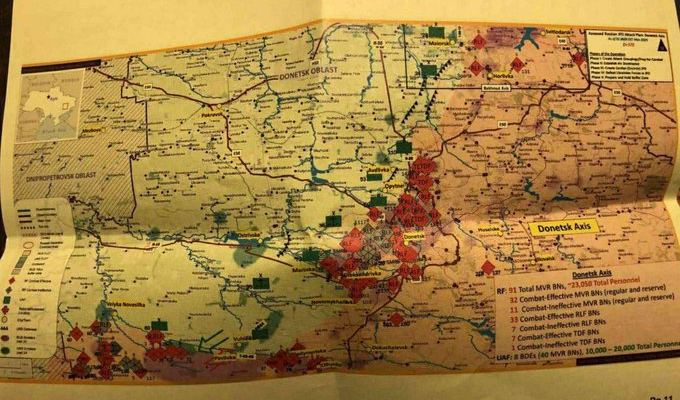Seoul to respond against Washington's espionage efforts
A meeting chaired by the National Security Adviser Cho Tae-yong was held today to discuss this new information and to decide on the adequate response.
-

South Korean conservative activists wave U.S. and South Korean flags in front of City Hall in Seoul, South Korea (Lee Jin-man/AP)
Following a New York Times report revealing US espionage efforts against allies, specifically referencing South Korea, Seoul revealed that they will be considering adequate ways to respond to this fact, a South Korean media outlet reported.
Earlier today, a report written by the New York Times, addressing the leaked Pentagon documents, underlined that Washington has been spying on South Korean officials. One of the files revealed that Washington managed to uncover the South Korean President’s unease with Biden’s request to buy artillery shells for Ukraine through “a signals intelligence report”; which refers to intercepted communications from phone calls and electronic messages.
"We will review precedents and instances involving other countries, and come up with our response accordingly … There is no change to our government's basic stance on Ukraine," a South Korean presidential official announced.
It was also reported that a meeting chaired by the National Security Adviser Cho Tae-yong was held today to discuss this new information and to decide on an adequate response.
Citing US officials, The New York Times reported on Saturday that the leaks of classified US documents obscured US ties with key allies and partners, and also undermined the US' credibility and ability to keep secrets.
The classified Pentagon documents leaked on Friday are proving to be a true treasure trove, revealing information not only about South Korea but also Ukraine, China, and the Middle East.
Read more: Mossad backed Israeli anti-govt protests: Leaked Pentagon documents
Based on the hundreds of leaked documents released on Twitter and Telegram, revealed that the leadership of the Mossad, the Israeli occupation's chief intelligence agency, encouraged the spy agency's staff, as well as illegal Israeli settlers, to partake in the anti-government protests that took the occupied territories by storm.
The leaked documents showed an assessment attributed to a Central Intelligence Update from last month, which said the Mossad's leadership "advocated for Mossad officials and Israeli citizens to protest against the new Israeli Government’s proposed judicial reforms, including several explicit calls to action that decried the Israeli Government."
The New York Times quoted incumbent and former Israeli officials as saying that Mossad's rules and so-called "tradition" of nonpartisanship would have prevented its higher-ups from involving the agency in a political crisis.
It was reported that numerous Mossad employees requested to participate in the protests, and their bids were accepted, while the agency's head, David Barnea, allowed junior employees to participate in the demonstrations on the condition that they do not reveal to the public that they are Mossad employees.
Read more: New batch of leaked documents: Ukraine, China, Middle East info reveal
US defense and intelligence officials have claimed to be investigating the leak which took over Twitter, Telegram, and the 4chan messaging board.
The New York Times reported that the leak included detailed maps as well as briefing slides on the state of China and the Middle East. One of the documents, dated February 23, was said to be labeled "Secret/NoForn" which meant that the content of the document was not meant to be disclosed to any foreign nation.
Despite confirming the legitimacy of the documents, defense officials have claimed that the files were tampered with, allegedly, to overstate the number of casualties in the war in Ukraine.
-

A detailed map of Ukraine that was revealed as part of the first batch of leaks of confidential documents from the US Pentagon on April 7, 2023. (Social media)
The documents included summaries of training schedules pertaining to 12 Ukrainian combat brigades, nine of which were being trained by the US and NATO. The brigades required 250 tanks, and more than 350 mechanized vehicles, the report noted.
The files also indicate expenditure rates for armaments under Ukraine's military control, including the HIMARS rocket systems.

 4 Min Read
4 Min Read








